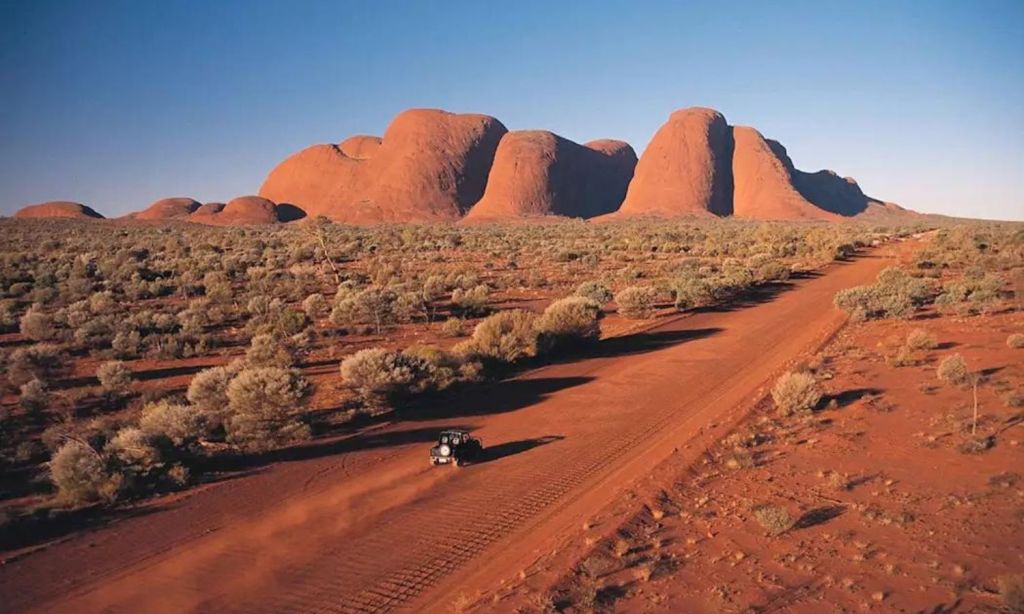If it really came down to it, Australia is famous for one thing above all others: the scenery. It’s a ridiculously good-looking country that is as beautiful as it is vast and diverse. Where else can you get ancient rainforest, snow-capped mountains, unforgiving deserts, never-ending beaches, and rock so red it looks like its molten?
With all that land and comparatively few people, roughly 650 natural areas have been given title of “national park“, although all of them are managed by states and territories, not the federal government. In addition to these parks, Australia has thousands of conservation areas, reserves, and Indigenous-protected regions that offer similar legal protections and boundless natural beauty. If you consider all of these as national parks, this would make Australia easily the country with the most national parks in the world.
With so many to see and so little time to do it in, decisions have to be made. Determining the absolute pinnacle of national parks in Australia is a tough call, as preferences and priorities vary drastically. If you seek breathtaking scenery and iconic landmarks, the Blue Mountains might be your haven. For those craving ancient rainforests and ecological wonders, Daintree beckons. And if rugged outback landscapes and adventurous activities entice you, Flinders Ranges awaits.
Ultimately, the matter of the best national park is purely subjective. However, considering the reviews, recognitions, and awards, these are the 7 frontrunners in as objective a list as it is possible to create. Each of these parks offers something truly breathtaking and guarantees an unforgettable adventure.
Kakadu National Park, Northern Territory
Packed with ancient wisdom, Kakadu National Park is the oldest and largest in Australia. It is a UNESCO World Heritage Site famous for its stunning sandstone escarpments, Aboriginal rock art, and diverse wildlife. Home to 2,000 species, it is also one of the most popular national parks in the country, attracting over 200,000 visitors annually. With 2 billion years of geology to contend with, Kakadu is where we find the longest continuous record of cultural civilisation on earth. It is consistently regarded as one of the best places to visit in the country.
Blue Mountains National Park, New South Wales
Flanking Sydney’s far-western edge, the Blue Mountains National Park stands like a battlement with its dramatic sandstone cliffs, deep valleys, and ancient forest. This UNESCO World Heritage site is a hiker’s paradise, encompassing 1.03 million hectares of protected bushland. The Three Sisters rock formation and Scenic World railway are tourism draws while quaint towns like Katoomba, Leura, and Blackheath offer guesthouse accommodation. Winning the TripAdvisor Travellers’ Choice award for best national park in Australia in 2023, the Blue Mountains are a force of nature to be reckoned with.
Daintree Rainforest National Park, Queensland
As the oldest rainforest in the world, the Daintree holds a special place in the national psyche. At 180 million years old and situated right at the top peak of the country, the Daintree is consistently ranked amongst the top national parks in both Australia and the world. It’s teeming with rare plants and animals, many of which are found nowhere else on the planet, including cassowaries and tree kangaroos. Visitors descend each year for its scenic walks, crocodile cruises, and unparalleled biodiversity.
Ikara-Flinders Ranges National Park, South Australia
At the heart of the impressive Flinders Ranges lies Ikara-Flinders National Park. Roughly five hours north of Adelaide, it is a vast and rugged showcase of ancient mountains, dramatic gorges, and outback tableaus. The park is a magnet for the adventurous, offering rock climbing, 4WD tracks, scenic flights, and wildlife encounters. Wilpena Pound, a natural amphitheatre formed over 500 million years ago, is a geological marvel not to be missed.
Uluṟu-Kata Tjuṯa National Park, Northern Territory
It’s not possible to talk about Australia’s national parks without including the most symbolic natural feature in the country. Uluṟu-Kata Tjuṯa is home to two iconic landmarks: Uluru and Kata Tjuta (The Olgas). These massive sandstone formations are over half a billion years old and sacred to the Indigenous Anangu people for whom they hold deep cultural significance. The park offers endless opportunities for hiking and learning about Anangu culture. Seeing these structures in person, particularly at sunrise or sunset, is akin to a spiritual experience and has to be done once in a lifetime.
Nambung National Park, Western Australia
Closing out the list is Nambung, a region roughly two hours north of Perth. This park is famous for its Pinnacles Desert, a truly other-worldly landscape of thousands of surreal limestone structures rising out of the sand. Visitors can walk among the pinnacles, explore nearby caves, and sandboard the dunes. The park is also home to a variety of wildflowers and wildlife, making it a great place for nature lovers. Nambung was made a UNESCO World Heritage Site in 2005 in recognition of its outstanding geology and biodiversity.
Related: 7 National Parks in New Zealand That Will Leave You Speechless
Related: 4 of the Most Stunning, Side Trip-Worthy National Parks in Japan
Read more stories from The Latch and subscribe to our email newsletter.

